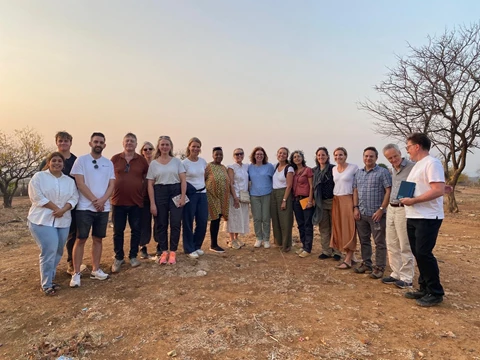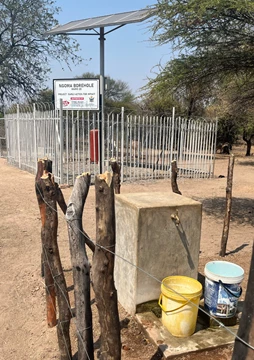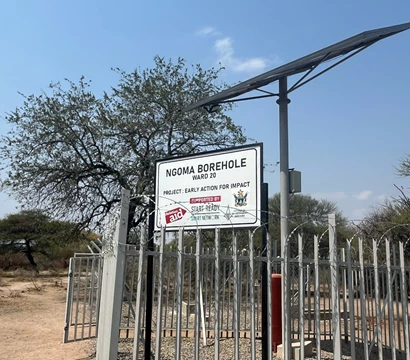I will admit I was a little bit nervous when I was asked to represent JOA on the Start Network donor visit in Tanzania and Zimbabwe. I had only been a JOA Programme Associate for three months at the time, so I was thrilled at the opportunity and responsibility that the team was trusting me with. But as with every challenge I've faced in my time at JOA, I approached it with a smile and the knowledge I had the full support of the team behind me.
First, some context, who are Start Network? They’re a pooled fund, meaning that they are given funding by a variety of donors, including institutional donors such as JOA and the FCDO, as well as private-sector foundations like IKEA and L’Oréal.
JOA has funded Start Network since 2018 and recently hosted the Start Network Donor Council (governance structure) in Jersey. This partnership fits well with JOA’s humanitarian strategy - funding innovative mechanisms that enable our funding to have maximum impact whilst maintaining support to local and national NGOs (LNNGOs), who are often on the frontline of humanitarian response.
Start Network connects, supports and builds the capacity of LNNGOs so that when there is a humanitarian crisis, funds can be disbursed quickly, knowing that all due diligence has been completed and that Start Network’s members are well positioned and supported to deliver.
To ensure accountability to donors, the Start Network hosts annual donor visits – providing insights into the impact of funding. Donors can speak directly to the NGOs who implement the projects and to hear from the community members about how the projects have impacted their lives. This visit was split between Tanzania and Zimbabwe – where I had the opportunity to visit three projects.
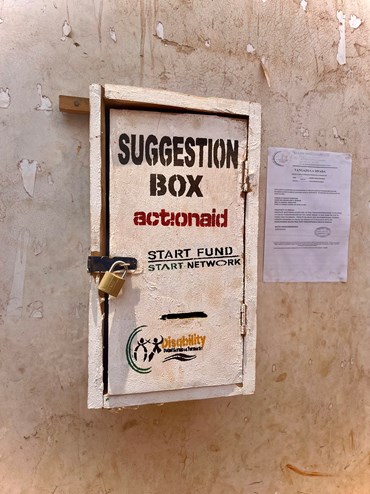
In Tanzania, we visited the work of ActionAid and Disability Relief Services Tanzania (DRST) – funded by the global Start Fund. It focused on the refugee camps in the northwest of Tanzania. The two main camps, Nduta and Nyarugusu, have existed for decades and have primarily sheltered refugees from conflicts in Burundi and the Democratic Republic of Congo. With the ongoing conflict in DRC, there has been a sudden increase in the arrival of refugees, placing pressure on both the surrounding host communities and the camps. The global humanitarian funding cuts have exacerbated such pressures as agencies like World Food Programme (WFP) and UNHCR, the UN’s Refugee Agency, have been forced to scale back their operations. This makes the work of ActionAid and DRST even more important as they work to mitigate potential tension between both refugees and host communities.
I had the opportunity to speak to members of the host community and hear about their experiences working on behalf of their communities, as committees providing feedback to the NGOs and for the prevention of gender-based violence (GBV). Hearing from these committees was a valuable experience demonstrated how the project has been successful in raising awareness about GBV and the support for survivors available within the community. However, it was clear there is a real sense of anxiety from the host communities as with the scaling back of aid, they were unsure how the situation in the camps will change, and what impact this may have on their community.
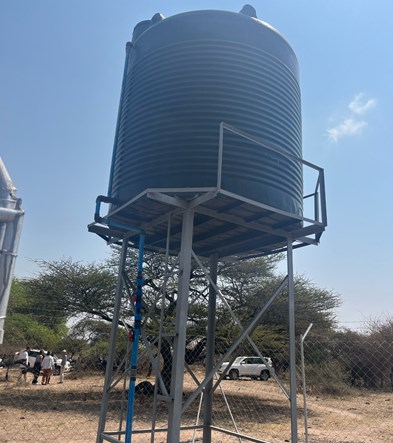
The two projects we saw in Zimbabwe differed from typical humanitarian action. These were examples of “anticipatory humanitarian action”, distributed to the people before the crisis reached its peak, allowing them to be prepared and protected against the worst of the crisis, in this case, a major drought in Zimbabwe.
The first project was funded through Start Network’s ARC Replica programme; this is essentially a large-scale drought insurance mechanism supported by NGOs and local government that pays out when specific risk indicators are triggered. For Zimbabwe, when there were clear scientific signs that drought was imminent, the funding was disbursed to the NGOs and government actors who were then able to use it to distribute food and drought-resistant seeds to the community.
The second project we saw was funded by the Start Ready – which is also an anticipatory action fund but doesn’t function in the same insurance style as ARC Replica. This project was alerted to the oncoming drought and triggered a release of funding that allowed the implementing partners, Lutheran Development Services (LDS), to build three deep boreholes in the communities, each connected to 10,000-litre water tanks that store the water ready for access at any time, all of this powered by solar panels. It was brilliant hearing from community members about how this project has changed their lives, allowing them to grow crops all year round, keep their livestock healthy, and make daily access to water so much easier, no longer risking long walks in the heat to old hand-powered pumps. The project was planned long in advance, so they were able to act as soon as they received funding, starting the build in November and finishing in January.
Overall, it was an amazing experience to see how JOA’s humanitarian funding is put to effective use by the Start Network and partners. The opportunity to meet and speak with community members who have been impacted by Start Network projects was invaluable: learning about the impact of the projects on their lives, and their feedback on implementation was really insightful. Additionally, speaking with the implementing partners and other donor representatives on the visit was a really great way for me to learn more about the sector and all the roles within it.
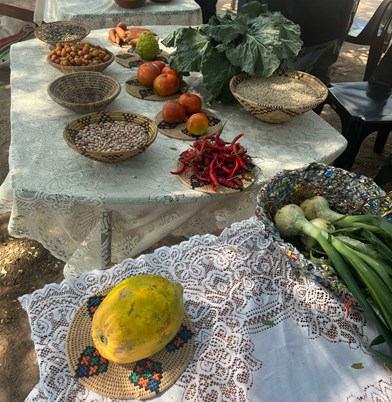
Thank you so much to the Start Network team for organising such an engaging trip and thank you to the JOA team for the opportunity.
The Programme Associate role is such an amazing experience and I’m looking forward to starting my placement in London with HelpAge.
Applications are open for the Programme Associate role every six months.


